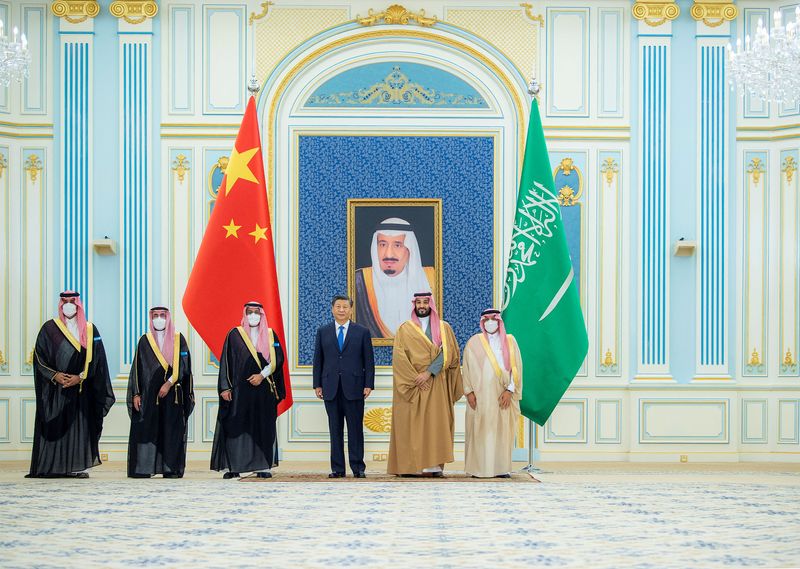Saudi Arabia and China a new era of relations
2022.12.09 04:11
[ad_1]

Saudi Arabia and China a new era of relations
Budrigannews.com – In a show of strength as an aspiring Middle Eastern leader and key partner for global powers, Saudi Arabia hosted “milestone” summits on Friday where Chinese President Xi Jinping met with Arab leaders.
On Thursday, Arab League heads of state from the Gulf, Levant, and Africa began arriving in Riyadh. Xi was greeted warmly by Prince Mohammed and signed a partnership agreement between China and Saudi Arabia with King Salman, indicating that ties were getting stronger.
The United States is keeping a close eye on Beijing’s growing economic influence in the region, where Chinese companies are expanding into technology and other infrastructure and China has a vested interest as the world’s largest energy consumer.
In addition, Xi’s visit comes at a time when Riyadh’s long-standing alliance with Washington has been strained due to disagreements over Russia’s energy policy, human rights, and the Gulf’s doubts about the commitment of America, the world’s main security guarantee, to the region.
Friday, Beijing and Riyadh issued a lengthy joint statement in which they pledged to increase cooperation, emphasized sovereignty and “non-interference” principles, and emphasized the significance of a peaceful resolution to the Ukraine conflict.
As they attempt to navigate a polarized world order with an eye on national economic and security interests, Saudi Arabia and Gulf allies have been defiant in the face of U.S. pressure to break with fellow OPEC+ oil producer Russia over its invasion of Ukraine and to limit dealings with China.
The joint statement reaffirmed the significance of global market stability and energy collaboration while attempting to boost non-oil trade and enhance cooperation in peaceful nuclear power. Oil tycoon Saudi Arabia is a major supplier to China.
“The two sides reaffirmed that they will continue to firmly support each other’s core interests,” according to the statement.
They agreed that Iran must adhere to “principles of good-neighborliness” and “strengthen joint cooperation to ensure the peaceful nature of Iran’s nuclear program” in response to Gulf security concerns regarding Iran, another oil supplier to China with whom Beijing has good ties.
Riyadh expressed support for Beijing’s Taiwan policy of “One China.” Saudi state television reported that Xi invited King Salman to visit China.
The Chinese leader claimed that his trip, during which he will meet other oil producers in the Gulf and take part in a larger Arab League summit on Friday, marked the beginning of a “new era” in relations.
According to Xi, who was quoted by the foreign ministry, “China looks forward to working with Saudi Arabia and Arab states to turn the two summits into milestone events in the history of China-Arab relations and China-GCC relations, and bring these relations to new heights.”
More Why don’t comply with environmental protection agreements
In addition to the heads of state and prime ministers of Iraq, Morocco, Algeria, Sudan, and Lebanon, attendees include the emir of Qatar, the crown prince of Kuwait, and the presidents of Egypt, Tunisia, Djibouti, Somalia, and Mauritania.
Prior to the summits, Xi had bilateral talks with the Crown Prince of Kuwait, Sheikh Meshal al-Sabah, the President of Egypt, Abdel Fattah al-Sisi, the Prime Minister of Iraq, Shia al-Sudani, the Leader of Sudan, General Abdel Fattah al-Burhan, and the President of Palestine, Mahmoud Abbas.
In addition to Saudi Arabia, which inked an MOU with Huawei regarding cloud computing and the construction of high-tech complexes in Saudi cities, diplomats stated that the Chinese delegation would sign agreements and memoranda of understanding with a number of states.
Despite U.S. concerns about a potential security risk, the Chinese tech giant has participated in the construction of 5G networks in the majority of Gulf states.








